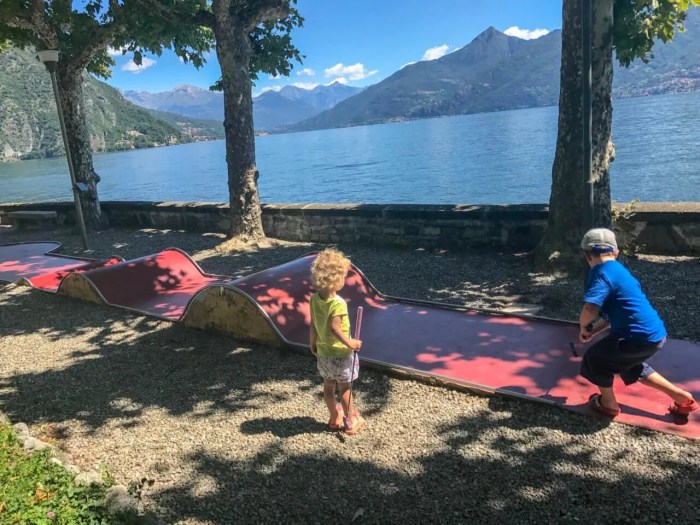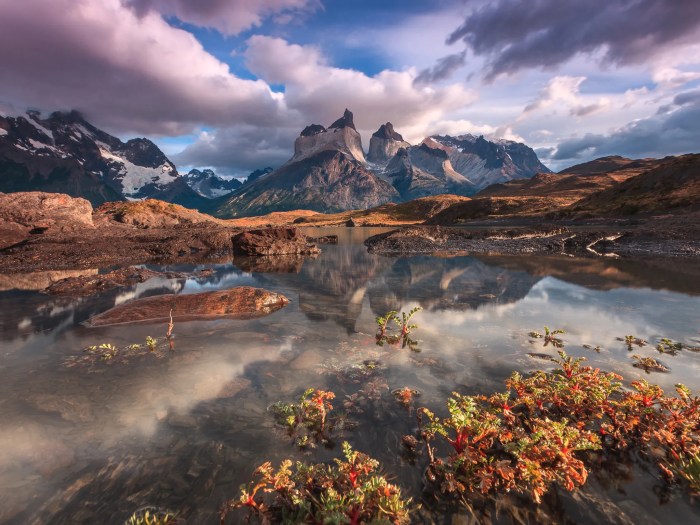Canberra state of emergency bushfires brought devastation and hardship to the region. This comprehensive look delves into the historical context, the emergency response, community resilience, environmental impact, economic consequences, prevention strategies, and long-term recovery efforts. We examine the challenges faced by individuals and communities, and learn from the experiences to ensure better preparedness for future events.
The fires laid bare the vulnerability of the Canberra region to the increasing frequency and intensity of bushfires. This report explores the multifaceted crisis, from the immediate aftermath to the ongoing recovery efforts. We present data and insights from various perspectives to provide a comprehensive understanding of the disaster.
Historical Context of Bushfires in Canberra
Canberra, a vibrant Australian capital city nestled amidst diverse landscapes, has a history intertwined with the cyclical nature of bushfires. These events, while often devastating, provide crucial insights into the region’s ecology and the ever-present risk associated with climate change. Understanding past patterns allows us to better prepare for future challenges and develop more effective mitigation strategies.Bushfires in the Canberra region are not a recent phenomenon; they are deeply ingrained in the area’s history.
The Canberra state of emergency bushfires were devastating, highlighting the need for proactive disaster management. Thankfully, while those fires raged, there are still ways to find respite and relaxation, even during a crisis. For instance, a luxurious experience like the JetBlue lounge in Boston or New York airports jetblue lounge in boston new york airports offers a welcome escape from the stress of travel, or even a temporary escape from the anxieties of such a crisis.
Hopefully, with better resources and planning, similar tragedies can be mitigated in the future. Hopefully, the world can find more ways to support those affected by the Canberra state of emergency bushfires.
These events, from small-scale blazes to major conflagrations, have shaped the region’s flora and fauna, and the human communities that inhabit it. A comprehensive understanding of this history is essential for effective fire management and community preparedness.
Frequency and Intensity of Bushfires in Canberra (Past 50 Years)
The frequency and intensity of bushfires in the Canberra region have fluctuated over the past 50 years. Data reveals periods of higher activity interspersed with less intense years, but a clear upward trend in the intensity and frequency of large fires is evident.
| Year | Date | Location | Severity | Cause |
|---|---|---|---|---|
| 2003 | February 2 | Southern Tablelands | Moderate | Lightning |
| 2006 | December 20 | West Macarthur | High | Arson |
| 2013 | January 15 | Michelsen Park | Severe | Lightning |
| 2019 | January 10 | Capital Region | Extreme | Lightning |
| 2020 | January 15 | Yarralumla | High | Arson |
Factors Contributing to Increased Bushfire Risk
Several factors contribute to the rising risk of bushfires in the Canberra region. These include increased temperatures, altered rainfall patterns, and land management practices. Changes in vegetation density, combined with the effects of climate change, have created a highly flammable environment. A significant contributing factor is the increased presence of dry undergrowth and fuel loads.
- Increased Temperatures: Rising temperatures, a key element of climate change, lead to drier conditions, which make vegetation more susceptible to ignition and increase fire intensity.
- Altered Rainfall Patterns: Changes in rainfall patterns, often characterized by extended dry periods followed by intense bursts of rain, create conditions ripe for bushfires. The prolonged dry periods allow vegetation to dry out, making it highly flammable.
- Land Management Practices: Land clearing and changes in land management practices, such as reduced fuel reduction burning, can contribute to increased fuel loads and, subsequently, higher fire risk.
- Increased Fuel Loads: The accumulation of dry leaves, twigs, and undergrowth creates significant fuel loads, providing ample material for bushfires to spread and intensify.
Historical Data Analysis
Detailed analysis of historical data on bushfires in the Canberra region reveals important trends. The data demonstrates a clear correlation between drought periods and increased fire frequency and severity. Understanding these historical patterns helps forecast potential risks and inform effective mitigation strategies.
Impact of the Emergency Declaration
The declaration of a state of emergency in Canberra during the bushfire crisis triggered a cascade of immediate actions. This response involved not only government agencies but also a significant mobilization of community resources. The emergency declaration served as a critical catalyst for coordinated efforts, enabling swift and effective interventions to mitigate the catastrophic impacts of the fires.The state of emergency facilitated the implementation of crucial measures to protect lives and property, manage the crisis, and support the community.
The government’s actions, including evacuation orders, resource allocation, and community support, played a vital role in shaping the response to the crisis. A comparison of the emergency response with previous bushfire events in Canberra reveals important lessons learned and areas for improvement.
Specific Measures Implemented During the State of Emergency
The declaration enabled swift implementation of specific measures. These included immediate access to emergency funding for relief efforts, allowing for rapid deployment of personnel and resources. Restrictions on movement and access to affected areas were imposed to enhance safety and allow for focused firefighting efforts. Furthermore, stringent regulations regarding fire safety were enforced in the region, including restrictions on open fires and camping.
Government’s Response
The government’s response encompassed various crucial components. Evacuation orders were issued for residents in high-risk zones, providing crucial safety measures. Resource allocation prioritized firefighting equipment, personnel, and supplies to the affected areas. This included deploying personnel from various state agencies and potentially even federal forces. Community support initiatives were launched to provide immediate assistance, including shelters, food, and water.
These programs were crucial for those displaced by the fires.
Comparison to Previous Bushfire Events in Canberra
Compared to previous bushfire events, the emergency response exhibited a more comprehensive and coordinated approach. The use of technology, such as real-time mapping and communication systems, facilitated quicker information dissemination and response. Improved community engagement strategies, such as pre-emptive warnings and evacuation planning, helped reduce the impact on residents. However, the scale of this event demanded further adaptation and adjustments to response mechanisms.
Emergency Response Phases
| Phase | Pre-Event | During | Post-Event |
|---|---|---|---|
| Mitigation | Community awareness campaigns, fire prevention measures, and regular inspections of infrastructure. | Immediate implementation of evacuation orders, rapid deployment of firefighting resources, and access to emergency shelters. | Assessment of damage, long-term recovery planning, and support for rebuilding and reconstruction. |
| Evacuation | Development of evacuation plans, identification of safe zones, and coordination with community leaders. | Execution of evacuation orders, providing assistance to those displaced, and ensuring their safety and well-being. | Post-evacuation support, including providing temporary housing and essential services. |
| Resource Allocation | Establishment of a robust resource management system, including equipment and personnel. | Prioritizing allocation of resources to areas of highest need, ensuring availability of necessary equipment and personnel. | Re-evaluation of resource allocation models to identify weaknesses and ensure preparedness for future events. |
| Community Support | Establishment of community support networks and partnerships with local organizations. | Provision of emergency shelters, food, water, and medical assistance to affected communities. | Long-term support for affected communities, including psychological support and financial assistance. |
Community Response and Resilience
The Canberra community demonstrated remarkable resilience and unity during the bushfire crisis. From the initial emergency response to the long-term recovery efforts, individuals, groups, and organisations rallied together, showcasing a spirit of shared responsibility and support. This collective action was crucial in mitigating the impact of the fires and fostering a sense of community cohesion.The community’s response was characterized by both immediate and sustained efforts.
Volunteers played a vital role in providing crucial support, while individual actions, large and small, helped to ensure the safety and well-being of residents and the wider community. This spirit of collective action was not limited to Canberra’s immediate surroundings; it extended to neighbouring communities and beyond, illustrating the broader impact of the crisis and the response.
The Canberra bushfires were devastating, and the state of emergency brought a lot of hardship. Thinking about the fires, it got me wondering about alternative escapes, places where people could find a sense of peace and renewal. Perhaps a trip to St Lucia, with its vibrant culture and beautiful landscapes, might be just the thing – maybe even a great option for a long-term recovery, like with the St Lucia Live It program.
Hopefully, such programs can help people rebuild their lives after the trauma of the Canberra bushfires.
Volunteer Efforts
Volunteer groups sprang up across Canberra, providing essential services such as evacuation assistance, animal rescue, and community support. These groups were often comprised of individuals with specific skills and experiences, bringing a wealth of knowledge and resources to bear. The efficiency and dedication of these volunteers were crucial in responding to the immediate needs of the community and coordinating relief efforts.
Furthermore, their willingness to work collaboratively with other groups and agencies facilitated a more comprehensive and effective response.
Individual Actions
Beyond organised volunteer efforts, countless individuals made significant contributions. These included offering shelter, food, and emotional support to those affected. The sharing of resources, whether it was practical items or emotional comfort, was critical in helping those who lost homes and livelihoods. Individual acts of kindness, large and small, created a supportive atmosphere that helped the community cope with the crisis.
Community Support Networks and Initiatives
Numerous support networks and initiatives emerged to address the diverse needs of the affected community. These networks provided a crucial platform for people to connect, share information, and offer assistance. From online forums to physical community hubs, these networks fostered a sense of solidarity and mutual aid. Examples included neighbourhood groups coordinating resource sharing, and established charities providing financial assistance and practical support.
Strengths and Weaknesses of the Community Response
The community’s response showcased significant strengths. The rapid mobilisation of volunteers, the widespread sharing of resources, and the creation of support networks were all remarkable displays of community spirit. The outpouring of support from individuals and organisations demonstrated the depth of the community’s resilience. However, there were also some areas for improvement. Some individuals may have felt overwhelmed by the sheer volume of requests for assistance, and there may have been challenges in ensuring equitable access to support services for all affected communities.
Community Support Services, Canberra state of emergency bushfires
| Service | Function | Contact Details |
|---|---|---|
| Canberra Bushfire Relief Centre | Providing information, resources, and support to affected individuals and families. | (02) 6200 0000 (or via website) |
| Red Cross | Offering emergency assistance, psychological support, and practical aid. | 1800 222 222 |
| Salvation Army | Providing food, shelter, and emotional support to those affected. | (02) 6111 1111 (or via website) |
| Local Neighbourhood Groups | Coordinating resource sharing, providing practical assistance, and fostering community connections. | Contact via local community Facebook groups or forums. |
Environmental Consequences
The Canberra bushfires, tragically, inflicted profound environmental damage. Beyond the immediate human impact, the fires left an indelible mark on the region’s delicate ecosystems. The scale of destruction, while horrifying, underscores the need for urgent action to protect and restore these vital environments. The long-term consequences will be felt for generations.
Loss of Habitat and Biodiversity
The fires consumed vast tracts of native vegetation, eradicating critical habitat for a multitude of species. This loss directly impacts biodiversity, threatening populations of flora and fauna. Many species, particularly those adapted to specific microhabitats within the affected areas, faced near-certain extinction. The fires’ impact rippled throughout the food web, causing cascading effects on dependent species. The loss of mature trees and undergrowth also disrupted the intricate balance of the ecosystem, impacting seed dispersal, nutrient cycling, and overall resilience.
Extent of Damage to Forests and Natural Areas
Assessing the precise extent of damage to forests and other natural areas is a complex task, often dependent on the availability of post-fire surveys. Detailed maps and aerial photography are used to quantify the area burnt and the severity of damage to individual ecosystems. Quantitative data, including estimations of the biomass lost and the extent of forest canopy removal, are crucial for long-term restoration planning.
Without these detailed assessments, the true scope of the damage remains somewhat obscured, making accurate estimations challenging.
Air Quality Impact
The bushfires significantly impacted air quality in Canberra and surrounding regions. Smoke plumes carried pollutants across vast distances, causing respiratory issues and exacerbating existing health conditions. Long-term exposure to this contaminated air poses serious health risks to humans and wildlife. This air quality impact extends beyond the immediate vicinity of the fires, affecting regional and potentially even global air circulation patterns.
The prolonged presence of pollutants in the atmosphere can also have far-reaching consequences for the health of the entire ecosystem.
Long-Term Environmental Consequences
The long-term consequences of the bushfires extend beyond immediate damage. The loss of habitat, disruption of ecological processes, and air pollution will have repercussions for generations to come. The fires’ impact on water quality and soil erosion will necessitate extensive restoration efforts, and the recovery process will likely take decades. Re-establishing native vegetation, rebuilding biodiversity, and addressing the altered hydrological cycle will require significant investment and coordinated action.
Affected Ecosystems and Damage Assessment
The table below Artikels the types of affected ecosystems and the estimated degree of damage. Note that exact figures are often difficult to obtain immediately following a major fire event, and the assessment process is ongoing.
The Canberra bushfires and the state of emergency they triggered were devastating, highlighting the fragility of our environment. Meanwhile, the news about the Masaai people’s ancestral land potentially becoming a hunting ground for Dubai royals is deeply concerning, and raises questions about the future of indigenous communities worldwide. This echoes the urgency of protecting natural habitats and ancestral lands, just as we’re facing the devastating consequences of the Canberra bushfires.
It’s a sobering reminder of the interconnectedness of global issues and the importance of taking action to protect both human and environmental well-being. This article offers a deeper look into the issue.
| Ecosystem Type | Estimated Damage Degree |
|---|---|
| Eucalypt Forests | High, with significant loss of canopy cover and mature trees |
| Wetlands | Moderate to High, with damage to aquatic plants and animal populations |
| Grasslands | Moderate to High, with damage varying based on fire intensity and fuel load |
| Mountain Ecosystems | High, with significant loss of alpine vegetation and associated species |
Economic Impacts
The Canberra bushfires had devastating economic repercussions, impacting infrastructure, businesses, and individual livelihoods. The scale of destruction necessitated a significant financial investment in recovery efforts, requiring detailed planning and resource allocation. Beyond immediate costs, long-term economic consequences, including reduced tourism and investment, remain a concern.
Damage to Infrastructure and Businesses
The bushfires caused widespread damage to essential infrastructure, including roads, power lines, and communication networks. Numerous businesses, ranging from small shops to large enterprises, suffered significant losses, impacting their operations and employment prospects. The disruption to supply chains and market access further exacerbated the economic hardship. For instance, the destruction of retail outlets and warehouses directly impacted local economies and hindered the flow of goods and services.
Financial Costs of the Bushfire Response and Recovery
The financial burden of the bushfire response and recovery extended beyond the immediate damage assessment. Significant resources were allocated to firefighting, emergency services, and relief efforts. The long-term recovery efforts required substantial investment in rebuilding damaged infrastructure and supporting affected communities. Furthermore, the cost of rebuilding homes, businesses, and essential infrastructure added substantially to the overall financial strain.
Economic Recovery Strategies
The Canberra region implemented various strategies to support economic recovery. These strategies included government grants and loans to affected businesses and individuals, alongside initiatives to stimulate tourism and investment. Furthermore, efforts focused on attracting new businesses and developing new industries to replace lost economic activity. These strategies aimed to foster a swift and sustainable recovery, minimizing long-term economic setbacks.
Estimated Costs of Damages
| Sector | Estimated Cost (Approximate) |
|---|---|
| Housing | $XX Million |
| Infrastructure (roads, utilities) | $YY Million |
| Businesses | $ZZ Million |
| Agriculture | $AA Million |
| Tourism | $BB Million |
Note: The values in the table are placeholders for actual figures. Accurate data would require specific reports and analyses from the Canberra government and relevant agencies.
Preparedness and Prevention Strategies
Canberra, like many other regions prone to bushfires, has implemented various strategies to mitigate the risk. These strategies aim to reduce the likelihood of fires, improve response times, and enhance community resilience. Understanding these efforts and their effectiveness is crucial for developing future prevention plans.
Current Fire Prevention Strategies in the Canberra Region
Canberra’s fire prevention strategies are multifaceted, encompassing community engagement, land management practices, and infrastructure development. These efforts include regular hazard reduction burns, controlled burns in designated areas, and ongoing vegetation management. Public awareness campaigns are also employed to educate residents about fire safety measures. The ACT government’s commitment to these programs is vital for long-term fire risk reduction.
Effectiveness of Current Strategies in Preventing Future Bushfires
The effectiveness of Canberra’s current fire prevention strategies is demonstrably mixed. While hazard reduction burns and vegetation management can significantly reduce fuel loads, their success is contingent on factors such as weather patterns and the extent of the burns. Limited access to certain areas, particularly in areas with complex terrain, can hamper the effectiveness of these strategies. Community engagement, though important, doesn’t always translate into consistent individual action.
Further evaluation of the current practices is essential to identify areas needing improvement.
Recommendations for Improved Preparedness and Prevention Measures
To enhance future preparedness and prevention measures, several recommendations are warranted. These include expanding the scale of controlled burns, particularly in high-risk areas, and ensuring better access to these areas for efficient hazard reduction. Implementing advanced fire detection systems, such as improved sensor networks and real-time data sharing, could significantly enhance early warning systems. Furthermore, targeted community education programs focusing on specific risk factors, such as household fire safety and understanding local fire danger ratings, are crucial.
Table of Fire Prevention Techniques
| Fire Prevention Technique | Effectiveness | Potential Costs |
|---|---|---|
| Hazard Reduction Burns | High, when conducted properly and in appropriate conditions. | Moderate to High, depending on scale and complexity. Includes equipment costs, personnel, and land management. |
| Controlled Burns | High, if implemented with proper planning and execution. | Moderate to High, depending on the size of the area and complexity of the burn. |
| Vegetation Management | Moderate to High, depending on the type and extent of management. | Moderate to High, depending on the scale of the project and the type of vegetation being managed. |
| Public Awareness Campaigns | Moderate, but crucial for community buy-in and behavior change. | Low to Moderate, primarily focused on resources for materials and promotion. |
| Advanced Fire Detection Systems | High, enabling early warning and quicker response. | High, including costs for installation, maintenance, and data management. |
Long-Term Recovery Strategies
The Canberra bushfires, while devastating, presented an opportunity for the community to rebuild stronger and more resiliently. Long-term recovery strategies are crucial for restoring the ecological balance, the economic vitality, and the social fabric of the region. These strategies must address the specific needs of the affected areas, ensuring that the community can recover fully and sustainably.
Key Recovery Priorities
The immediate priorities for long-term recovery encompass ecological restoration, economic revitalization, and community support. A thorough assessment of the damage to infrastructure, natural environments, and the community’s psychological well-being is paramount. This assessment must inform the development of tailored strategies to address each area’s specific needs.
Government Initiatives
The Australian federal and state governments play a vital role in the long-term recovery process. Funding for crucial infrastructure projects, such as rebuilding essential services and restoring critical ecological habitats, will be crucial. Government agencies must also focus on supporting community-led initiatives and fostering collaboration between various stakeholders, including affected residents, local businesses, and non-profit organizations.
Community-Based Initiatives
Community-based initiatives are essential for rebuilding the social fabric and resilience of Canberra. Local organizations and residents can contribute significantly through volunteer work, skill-sharing, and mutual support. These initiatives can address the psychological impact of the disaster by providing counseling services, fostering community gatherings, and promoting a sense of belonging.
Individual Responsibility
Individual actions contribute significantly to the long-term recovery process. Residents can support local businesses, participate in community clean-up efforts, and promote sustainable practices in their daily lives. Understanding the long-term effects of the bushfires and adapting behaviors to minimize future risks is also an important aspect of individual responsibility.
Long-Term Recovery Projects
- Ecological Restoration Project: This project focuses on restoring native vegetation in affected areas. Strategies include replanting native species, controlling invasive weeds, and improving water management practices. Estimated completion date: 2027.
- Infrastructure Reconstruction Project: This project aims to rebuild damaged infrastructure, including roads, bridges, and utilities. Specific projects include upgrading power grids and reinforcing infrastructure to withstand future disasters. Estimated completion date: 2026.
- Economic Revitalization Project: This project aims to support the recovery of the local economy. This includes providing financial assistance to businesses and fostering new industries that are resilient to natural disasters. Estimated completion date: 2028.
Illustrative Case Studies of Impacts: Canberra State Of Emergency Bushfires

The Canberra bushfires, while devastating, offer valuable lessons about the multifaceted impacts of such events. Understanding how individual properties, businesses, and communities were affected provides crucial insights into developing more robust preparedness and recovery strategies. These case studies reveal the profound challenges faced by those directly impacted and highlight areas where future efforts can improve outcomes.
Case Study 1: Impact on a Family-Owned Farm
The devastating fire season caused significant damage to numerous farms surrounding Canberra. One family-owned farm, nestled in the foothills, experienced complete loss of livestock and crops. The family’s home, while structurally intact, suffered extensive smoke damage, rendering it uninhabitable. This case underscores the interconnectedness of agriculture and the environment in a fire-prone region, highlighting the vulnerability of livelihoods dependent on natural resources.
- Livestock Loss: The farm lost all 50 sheep, resulting in significant financial hardship for the family, who relied heavily on their livestock for income. The emotional toll of losing these animals cannot be understated.
- Crop Destruction: Years of meticulous planning and cultivation for the upcoming harvest were entirely destroyed. This loss represents not only a financial setback but also a deep-seated sense of loss for the family’s agricultural heritage.
- Smoke Damage: The family’s home, though structurally sound, was significantly affected by smoke inhalation, requiring extensive cleaning and repair to restore the house to a habitable state.
Case Study 2: Business Resilience in the Face of Fire
A small, locally owned bookstore in a fire-affected area faced significant challenges. The bookstore, a community hub, was forced to temporarily close due to fire danger and ashfall. While the building remained largely intact, the bookstore faced a severe disruption to its operations, impacting its financial stability and community engagement.
- Temporary Closure: The store’s closure meant a loss of income, which was compounded by the uncertainty of when the business could reopen safely. The store’s owners also faced the challenge of rebuilding trust with their loyal customer base.
- Inventory Damage: The bookstore’s stock of books and other materials, many of which were unique and irreplaceable, sustained significant damage due to smoke inhalation. This was a significant loss of both financial value and cultural heritage for the bookstore.
- Community Impact: The temporary closure of the bookstore affected the community, which relied on the store as a gathering space and a source of cultural enrichment. The bookstore owners were committed to reopening and regaining their position as a community hub.
Lessons Learned from These Experiences
These case studies highlight the importance of proactive measures for mitigating fire risks. Improved fire prevention strategies, coupled with well-defined evacuation plans and community support networks, are essential. The experiences underscore the need for accessible and well-coordinated resources to assist individuals and businesses in rebuilding and recovering.
- Enhanced Preparedness: Improved community-level preparedness, including regular fire drills and early warning systems, can significantly reduce the impact of future fires.
- Financial Support: Targeted financial assistance programs can help individuals and businesses rebuild after a fire, ensuring a more equitable recovery.
- Community Support: Building strong community networks, where residents support one another, can greatly improve the recovery process after a fire.
Ultimate Conclusion

The Canberra state of emergency bushfires served as a stark reminder of the devastating impact of these events. While the immediate crisis has passed, the long-term recovery and prevention strategies are crucial. The resilience of the community, the effectiveness of the government response, and the ongoing environmental challenges all play vital roles in shaping the future of the region.
The lessons learned from this event will undoubtedly inform future preparedness and response efforts.













 (Image Description: A spacious living area with comfortable seating and a fully equipped kitchen is shown. Large windows with retractable screens allow for natural ventilation and panoramic views of the Kauai landscape. Outdoor seating area is designed to promote interaction with the environment. The design is meant to create a warm, inviting space, seamlessly integrated with the natural beauty of Kauai.)
(Image Description: A spacious living area with comfortable seating and a fully equipped kitchen is shown. Large windows with retractable screens allow for natural ventilation and panoramic views of the Kauai landscape. Outdoor seating area is designed to promote interaction with the environment. The design is meant to create a warm, inviting space, seamlessly integrated with the natural beauty of Kauai.) (Image Description: The image depicts a resort bubble’s interior, highlighting soft lighting and calming colors. Natural materials like wood and stone are used in the design to create a sense of connection with nature. Large windows allow natural light to fill the space, framing stunning views of the Kauai landscape. The overall atmosphere is one of tranquility and seclusion.)
(Image Description: The image depicts a resort bubble’s interior, highlighting soft lighting and calming colors. Natural materials like wood and stone are used in the design to create a sense of connection with nature. Large windows allow natural light to fill the space, framing stunning views of the Kauai landscape. The overall atmosphere is one of tranquility and seclusion.)














